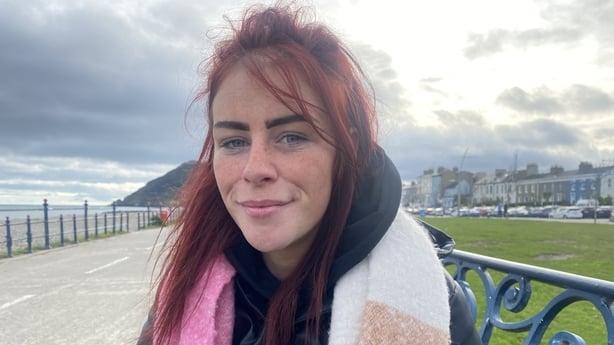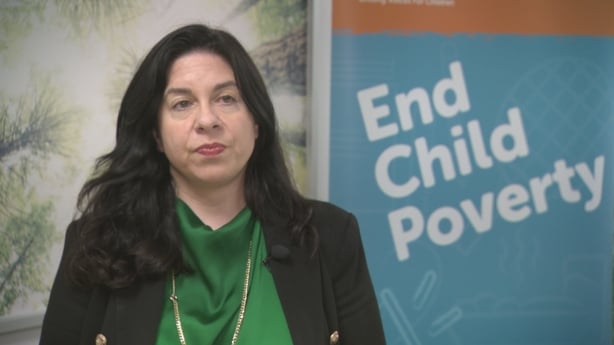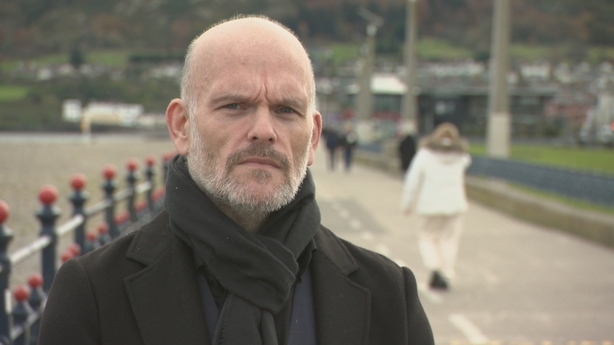A 29-year-old mother-of-two has said that she has been shielding her children from the reality of knowing why they have moved eight times in the last two years.
"I try not to let the girls know that they're homeless," Lorna Byrne says. "My oldest girl thinks we're on a kind of travel holiday because we've moved around so much. I let her think that we're experiencing Dublin a little bit.
"I don't want them to know that they're homeless in the sense of mental health and stigma."
Latest figures from the Department of Housing show that the number of people homeless in Ireland has surpassed 13,000 for the first time.
A total of 13,179 people were homeless last month, including 3,991 children.
It is the highest number of children living in emergency accommodation in Ireland since current records began almost ten years ago.
In the last year, child homelessness has risen by 17% and that cohort includes Lorna's two daughters aged six and two.

Every morning Lorna travels with her children from their emergency accommodation in South Dublin to Bray, where her eldest daughter attends school.
It takes around 40 minutes to go one way. To save on train fares, Lorna waits in Bray with her two-year old until school ends in the afternoon.
She fills her day walking around the seaside town.
While it may sound challenging, it's an improvement on the commute they once took from their emergency accommodation in Rathmines, which is a greater distance from Bray.
The three had to leave at 6.30am to make school by 9am and they got home later in the evenings.
"It's an awful lot to get her to school, but it's worth it. The school that she's in gives her great support. It gives her everything. It's helped her be her little self again", according to Lorna.
Visitors are not allowed in the emergency accommodation where she and the children live, which means she cannot host playdates.
There is a back garden and a front garden, but those who live in the units/flats don't have access to the outdoor space on the property.
Emergency accommodation impacted the mobility of Lorna's youngest child, who has been homeless since she was four months old.
She has only ever known emergency accommodation - sleeping in a double bed with her sister and her mother and navigating tight spaces in an effort to walk.
"There's no space to play. It's had an effect physically and mentally on the girls. The older girl, she's in senior infants and she wants to have play dates. She wants to go to a friend's house.
"I don't mind her going, but it's the embarrassment, then, of turning around and saying I'm not allowed to bring you back."
There are almost 4,000 children homeless in Ireland, and the adverse childhood trauma that stems from that experience is immense, according to Chief Executive of the Children's Rights Alliance Tanya Ward.
"Children are often ashamed to tell people that they're homeless. Often parents spend huge amounts of time travelling across a city to keep them in their old schools.
"Smaller children are not getting space to play and are really missing all those developmental milestones. The grind of living through homelessness leaves a terrible legacy on a family."

The homeless charity Depaul has been helping families like Lorna and her children, but as Christmas approaches the situation is grim.
Dermot Murphy, who is Depaul's Director of Services and Development, says that while a lot of work goes into ensuring that Christmas is special for everyone in their services, it's not the first Christmas for some children in homelessness.
Depaul homeless services want to see more preventative interventions before people enter homelessness.
"We're facing into the winter now knowing that families are in unstable accommodation, and they have a lack of appropriate options to move on to, and we know that the rental market is contracting continuously", according to Mr Murphy.
"A lot of work has to be done to reassure the kids that Santa always knows where to find you, but we also have to support the families because it's an incredibly stressful situation for them."

Lorna has put up a Christmas tree in the flat but has also lived out of bags to ensure that she and the children can leave the flat rapidly if they’re given short notice (usually 24 hours), to move to different emergency accommodation.
It’s a position she never foresaw herself in prior to the Covid pandemic and before she lost her managerial job in hospitality.
"I had a good job. I paid my rent. I paid my bills. I paid everything. Something happened to me in my own personal life that was out of my control. People don't look at it like that.
"As soon as they found out I was homeless they were like, there has to be something else. Nobody can actually believe the coin can flip at anytime."
The stigma of being homeless in Ireland in 2023 has been eye opening for Lorna.
"I'm going to be a much better person in myself from being homeless and the reason is because I've learned to be on the bottom and there's nowhere else you can go when you're homeless.
"I've lost an awful lot of people. I've lost people that I would have classed as friends because they don't necessarily want to be associated with someone that's homeless."
Lorna is battling for a place she can call home, somewhere she can securely raise her girls that will enable her to begin life again, but she’s cynical about solutions.
"At the end of the day, Council workers and TDs and politicians, they all get to go home at night, and put their feet up and forget about it. We don't. There's alleviation for them. There's no alleviation for us and they can do something about it.
"They haven't wanted to find the answer as far as I'm concerned and there's an answer out there, they just don't want to find it."






